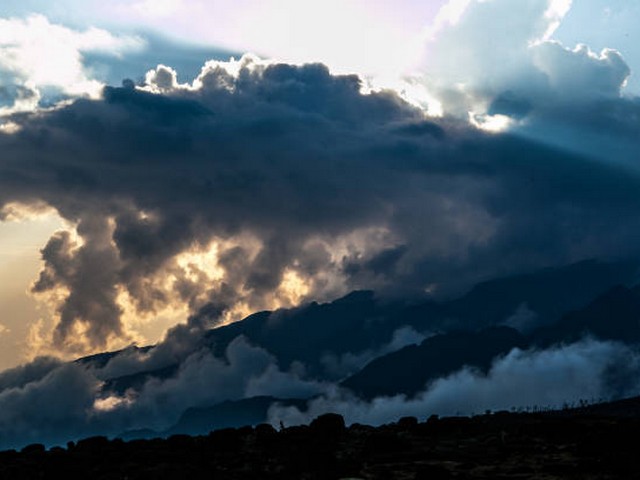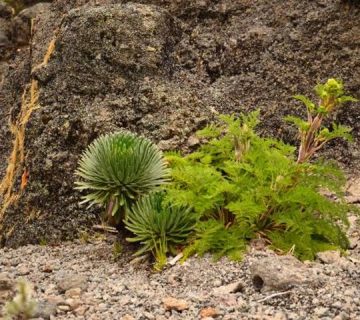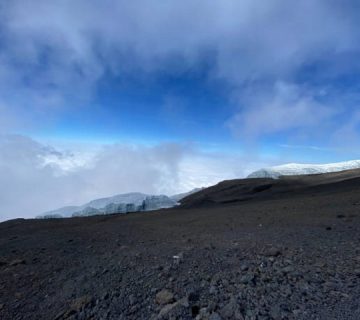How To Prepare Your Body And Mind For The Challenges Of Kilimanjaro
Standing majestically as the highest peak in Africa, Mount Kilimanjaro beckons adventurers from all corners of the globe with its snow-capped summit and breathtaking views. However, conquering this giant is no small feat; it demands not only physical but also mental preparation. Here at the Kilimanjaro Centre for Trekking and Ecotourism (KCTE), we believe that the journey to Uhuru Peak is as much about inner growth as it is about physical endurance. In this comprehensive guide, we’ll walk you through how to prepare your body and mind for the challenges of Kilimanjaro, setting you on a path to success atop this iconic mountain.
Setting the Stage: Understanding the Challenge Ahead
Before diving into the specifics of preparation, it’s crucial to understand what climbing Kilimanjaro entails. This majestic mountain rises approximately 5,895 meters (19,341 feet) above sea level, and trekking to its summit is a rigorous multi-day endeavor that traverses through five distinct climate zones. Each zone presents its own set of challenges, from scorching heat to freezing temperatures.
Preparing for such a diverse and demanding adventure requires a holistic approach, ensuring that both your body and mind are well-equipped for the ascent. At KCTE, we emphasize a balanced preparation strategy that addresses physical fitness, mental readiness, proper nutrition, and acclimatization.
Physical Fitness: Building Your Kilimanjaro Stamina
Cardiovascular Endurance
Start by building your cardiovascular endurance, as you’ll be trekking for several days, often over steep and uneven terrain. Engage in activities like running, cycling, or swimming for at least 30 minutes a day, gradually increasing the intensity and duration as your fitness improves.
Strength Training
Focus on building the strength of your legs and core, which will be instrumental in hiking. Exercises such as squats, lunges, and planks are excellent for strengthening these key muscle groups. Additionally, don’t overlook the importance of a strong back and shoulders, as you’ll likely be carrying a daypack.
Altitude Training
If possible, incorporate altitude training. This can involve hiking in higher elevations or using a specialized altitude training mask. Training in these conditions can help your body adjust to lower oxygen levels, reducing the risk of altitude sickness.
Mental Preparation: Cultivating the Right Mindset
Visualization Techniques
Mental resilience is just as critical as physical toughness. Begin by visualizing your climb. Imagine yourself successfully overcoming the various challenges and reaching the summit. This mental rehearsal can enhance your motivation and confidence.
Stress Management Practices
Learn and practice stress management techniques such as deep-breathing exercises or meditation. These tools are invaluable on the mountain when you need to maintain calm and focus under challenging conditions.
Setting Realistic Goals
Set achievable, realistic goals for your climb. Break down the trek into manageable segments, focusing on one day at a time. This approach can prevent feeling overwhelmed and help you maintain a positive mindset throughout the journey.
Nutrition and Hydration: Fueling Your Ascent
Balanced Diet
In the months leading up to your climb, eat a balanced diet rich in carbohydrates, proteins, and healthy fats. Carbohydrates are particularly important as they are a primary source of energy that will keep you going during long trekking days.
Hydration Strategies
Hydration is crucial, especially at altitude where the air is dryer and dehydration occurs more rapidly. Aim to drink at least 3-4 liters of water daily during your climb. Start practicing this habit well before your departure to get your body accustomed to increased fluid intake.
Supplements
Consider taking dietary supplements to boost your nutrient intake. Iron, vitamin D, and B vitamins are essential for energy production and efficient oxygen transport. However, always consult with a healthcare provider before starting any supplement regimen.
Acclimatization: Adapting to Altitude
One of the most challenging aspects of climbing Kilimanjaro is the high altitude. To maximize your chances of a successful summit, choose a longer route that allows for better acclimatization. At KCTE, we recommend routes like the Lemosho or the Machame, which provide ample time to adjust to higher elevations.
Joining Forces with KCTE: Your Ultimate Climbing Partner
Why choose Kilimanjaro Centre for Trekking and Ecotourism (KCTE) for your epic climb? We not only provide seasoned guides and comprehensive support, but we also imbue every trek with insights into local culture and environmental conservation. Our expertly crafted itineraries are designed to give you the best possible chance of reaching the summit while enjoying the journey itself.
Frequently Asked Questions
Q: How long does it take to prepare for a Kilimanjaro climb?
A: We recommend starting your physical and mental preparation at least 6 months before your planned climb.
Q: What is the best time of year to climb Kilimanjaro?
A: The best times are during the dry seasons, from June to October and from December to March.
Q: Can beginners climb Kilimanjaro?
A: Yes, Kilimanjaro is accessible to beginners who are in good physical condition and who prepare adequately. Choosing the right route and pace is crucial.
Q: What should I pack for my Kilimanjaro trek?
A: Essential items include thermal clothing, hiking boots, a sleeping bag suitable for low temperatures, a daypack, and personal medications.
Conclusion: Ready for the Roof of Africa?
Preparing for Kilimanjaro is no small endeavor, but with the right approach, it’s an incredibly rewarding experience. By focusing on physical fitness, mental preparation, proper nutrition, and acclimatization, you’ll set yourself up for success on the mountain. And with the Kilimanjaro Centre for Trekking and Ecotourism (KCTE) by your side, your dream of standing atop the Roof of Africa will be within reach. Are you ready to embark on this life-changing adventure? Contact us today to book your climb and take the first step towards conquering Kilimanjaro.




